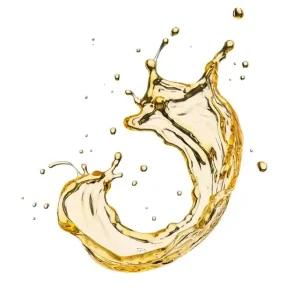 Deep draw metal stamping is a highly specialized manufacturing process used to create precise, durable components for industries such as automotive, aerospace, electronics, and medical devices. It involves transforming flat metal sheets into three-dimensional shapes through a series of punches and dies. While the process is efficient and versatile, it requires precise control to ensure quality and efficiency. One often overlooked but vital element in achieving this control is the use of lubricants. In this blog post, we’ll explore why lubricants are essential in deep draw metal stamping, how they contribute to the process, and what factors to consider when selecting the right lubricant.
Deep draw metal stamping is a highly specialized manufacturing process used to create precise, durable components for industries such as automotive, aerospace, electronics, and medical devices. It involves transforming flat metal sheets into three-dimensional shapes through a series of punches and dies. While the process is efficient and versatile, it requires precise control to ensure quality and efficiency. One often overlooked but vital element in achieving this control is the use of lubricants. In this blog post, we’ll explore why lubricants are essential in deep draw metal stamping, how they contribute to the process, and what factors to consider when selecting the right lubricant.
Why Are Lubricants Necessary in Deep Draw Metal Stamping?
- Reducing Friction
Deep drawing involves significant contact between the metal sheet, dies, and punches. This creates high levels of friction, which can cause wear and tear on equipment and affect the quality of the stamped parts. Lubricants reduce this friction, allowing the metal to flow smoothly into the desired shape without tearing or wrinkling.
- Preventing Material Defects
Without proper lubrication, the metal can experience galling (adhesion of material to the die or punch), scratching, or other surface defects. These issues compromise the aesthetic and functional quality of the final product.
- Extending Tool Life
The punches and dies used in deep drawing are subject to immense pressure. Lubricants act as a protective barrier, reducing the direct impact and wear on these tools, which extends their lifespan and minimizes downtime for maintenance or replacement.
- Improving Process Efficiency
By facilitating smoother material flow and reducing resistance, lubricants help improve cycle times, ensuring higher productivity and reduced costs.
Types of Lubricants Used in Deep Draw Metal Stamping
The choice of lubricant depends on the material being drawn, the complexity of the part, and the specific requirements of the stamping process. Common types include:
- Oil-Based Lubricants
Traditional and widely used, oil-based lubricants are effective for most applications. Variations include straight oils, synthetic oils, and emulsions.
- Water-Based Lubricants
Preferred for their eco-friendliness, water-based lubricants are ideal for industries with stringent environmental regulations. They also offer easier cleanup compared to oil-based options.
- Solid Lubricants
Powders, films, or coatings such as graphite or molybdenum disulfide are used in situations where liquid lubricants are not feasible.
- Hybrid Lubricants
These combine properties of oil- and water-based lubricants to deliver a balance of performance and environmental compliance.
 Key Factors in Selecting a Lubricant
Key Factors in Selecting a Lubricant
- Material Compatibility
The lubricant must be compatible with the material being stamped, whether it’s aluminum, stainless steel, or another alloy.
- Part Complexity
More complex shapes may require lubricants with higher viscosity or advanced properties to ensure even distribution.
- Operating Conditions
Consider factors such as temperature, pressure, and speed of the process, as these can influence the performance of the lubricant.
- Environmental and Safety Concerns
Ensure that the lubricant meets environmental regulations and is safe for workers to handle.
- Ease of Removal
Post-stamping cleaning can add time and cost to production. Select a lubricant that is easy to remove without leaving residues that could interfere with subsequent processes like painting or coating.
Emerging Trends in Lubrication for Deep Drawing
With advancements in materials science and increasing focus on sustainability, modern lubricants are being engineered for greater performance and environmental responsibility. Bio-based lubricants, for instance, offer a renewable and biodegradable alternative to traditional oil-based products. Additionally, innovations in dry film lubricants are reducing the need for cleaning and disposal, further streamlining the process.
Lubricants play a critical role in the success of deep draw metal stamping. They ensure precision, protect tools, and enhance process efficiency. By understanding the types of lubricants available and carefully selecting the right one for your application, manufacturers can achieve optimal results while reducing costs and minimizing environmental impact.
At Echo Industries, we understand the complexities of deep draw metal stamping and the importance of selecting the right materials, tools, and lubricants. Contact us today to learn more about how we can meet your manufacturing needs with our expertise and ISO9001:2015-certified processes.

